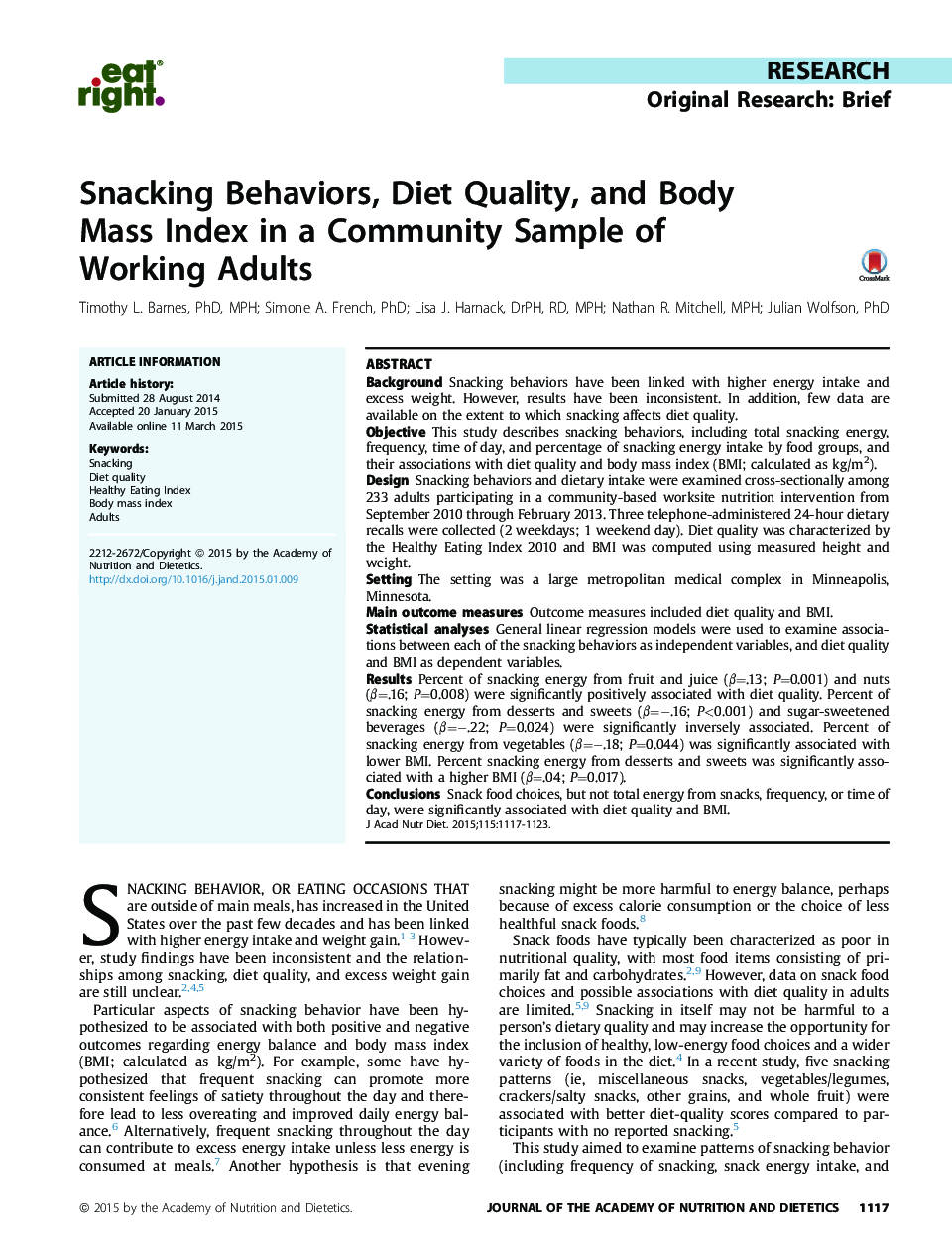| کد مقاله | کد نشریه | سال انتشار | مقاله انگلیسی | نسخه تمام متن |
|---|---|---|---|---|
| 2653011 | 1564048 | 2015 | 7 صفحه PDF | دانلود رایگان |
BackgroundSnacking behaviors have been linked with higher energy intake and excess weight. However, results have been inconsistent. In addition, few data are available on the extent to which snacking affects diet quality.ObjectiveThis study describes snacking behaviors, including total snacking energy, frequency, time of day, and percentage of snacking energy intake by food groups, and their associations with diet quality and body mass index (BMI; calculated as kg/m2).DesignSnacking behaviors and dietary intake were examined cross-sectionally among 233 adults participating in a community-based worksite nutrition intervention from September 2010 through February 2013. Three telephone-administered 24-hour dietary recalls were collected (2 weekdays; 1 weekend day). Diet quality was characterized by the Healthy Eating Index 2010 and BMI was computed using measured height and weight.SettingThe setting was a large metropolitan medical complex in Minneapolis, Minnesota.Main outcome measuresOutcome measures included diet quality and BMI.Statistical analysesGeneral linear regression models were used to examine associations between each of the snacking behaviors as independent variables, and diet quality and BMI as dependent variables.ResultsPercent of snacking energy from fruit and juice (β=.13; P=0.001) and nuts (β=.16; P=0.008) were significantly positively associated with diet quality. Percent of snacking energy from desserts and sweets (β=−.16; P<0.001) and sugar-sweetened beverages (β=−.22; P=0.024) were significantly inversely associated. Percent of snacking energy from vegetables (β=−.18; P=0.044) was significantly associated with lower BMI. Percent snacking energy from desserts and sweets was significantly associated with a higher BMI (β=.04; P=0.017).ConclusionsSnack food choices, but not total energy from snacks, frequency, or time of day, were significantly associated with diet quality and BMI.
Journal: Journal of the Academy of Nutrition and Dietetics - Volume 115, Issue 7, July 2015, Pages 1117–1123
